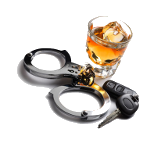
|
CarGalaxies.com One Stop Placefor All Drivers! |


|
CarGalaxies.com One Stop Placefor All Drivers! |


Defeating a DUI ticket is one of the trickiest - if feasible at all - challenges any driver can have. The positive result is never guaranteed and there is always a lot of psychological pressure during the process. DUI is a serious violation and is even considered to be a felony in many States. However being knowledgeable and prepared to fight a DUI always helps to improve your chances and minimize the potential loss. Below discussed tips and tricks provide you with a general guidance and professional advices shared by many practicing DUI lawyers with real experience of defending DUI/DWI cases in the court.
Consider using a designated driver, or take a cab or consider using the special “drunk” drivers support services which exist in many places. For example, AAA provides free towing service for its members on official State Holidays, Super Bowl Day and some other “strategic” events.
Generally one alcoholic drink (glass of wine, one beer or one shot of whisky) safely metabolizes in the human body for about 30 min - 1 hour. The real number – your number - will depend on your gender, age, your metabolism rate, weight (amount of blood in your body), previous food intake, number of drinks you have had and the time elapsed after your last drink.
Note also, that contrary to popular belief, coffee, tea, a cold shower, fresh air or physical exercise cannot help you to get sober sooner. So, plan accordingly and leave enough time to sober out. So, the second DUI advice – know your number if you drink before your drive. Best of all, to avoid any possible here mistakes use a personal breathalyzer. There is a plethora of personal breathalyzers available in the market and ranging from $10 to several hundred dollars depending on functionality and accuracy they provide. Purchase the one you can afford and test your breath before you can start driving. This simple fix will save you from much of trouble related to DUI.You might ask what would be the best retaliation strategy for either scenario above. The main logic behind your strategy in both scenarios is basically the same – more you cooperate with traffic police the more evidence you can leave to him. Pull yourself together, stay reserved and don’t do any silly things to hurt your chances.
For the first scenario - if there is ANY chance that you can fail the roadside test then without any doubt you should politely refuse the test and ask to talk to your lawyer first. Note that roadside tests are not mandatory and there are no administrative consequences for refusing the roadside test. Most likely you will be detained and placed into the jail for 8 hours but you will manage to maintain your greatest asset – a presumption of innocence. It would be much more difficult to save your case in front of a jury if you failed the road side test for any reason. Another possible advantage for you here is winning time - negotiation with the police at the traffic stop, then driving to the police station, then doing paperwork there can take some time (sometimes hours) so you will get an additional chance and time to sober out if needed.
For the second scenario – the strategy is the same: if there is ANY chance that you can fail the breath-, blood- or urine- test then politely but firmly refuse the test until you can speak with your lawyer. This will give you additional time to sober out and to postpone the test. However this case is generally more difficult to defend because of the so called "Implied Consent Law" acting in many States. According to that law - at the time of issuing a driving license to you - you give the law enforcement authorities your explicit advanced consent to conduct the BAC Tests over you if needed. This consent limits your chances for escape later. Nevertheless politely insist to speak with your lawyer and discuss your next step with him. This way you will significantly increase your chances to survive your DUI. The optimal defense strategy your lawyer would design to defend you in the court heavily depends on specific details of your DUI/DWI case as well as on other important for law factors.
Note, for example, that there are not one but two categories of charges for drinking and driving. First charge category is a well known DUI (Driving Under Influence) which addresses driver’s erratic driving at the time of incident rather than anything else. DUI means that you are under the influence but not necessarily over the limit. This charge category is very subjective and basically relies on judgment of the police officer who was observing the scene and who conducts the roadside sobriety express test.
Second charge category, more commonly known as DWI (Driving While Intoxicated) focuses on charges for having BAC (Blood Alcohol Level) above the legal limit. It defines the critical BAC levels for different age groups, driver categories and conditions. For example critical BAC levels for underage drivers (younger than 21 years of age), commercial drivers and normal drivers are set to be 0.02, 0.04 and 0.08 respectively. Note, that 0.02 actually means absolutely no drinking, i.e. Zero Tolerance for drivers under 21.
Note that there is a distinct group of drivers who are tolerant (resistant) to the alcohol consumption and who can be well intoxicated without being impaired. According to the DWI law these particular drivers still can be found guilty in high BAC level (0.08 law) but not guilty in driving under the influence!
Conversely, a drinking newbie with low tolerance to alcohol may be impaired way below the 0.08 level and hence found not guilty for DWI but guilty for DUI. If you are guilty of either offense, or both offenses, the punishment is the same.
Note also, that DWI law doesn’t address driving under drug “intoxication” as for drugged drivers BAC is usually perfectly normal. To the same token DWI excludes all drivers who have a medical condition and who take legal, prescribed to them drugs which can make them drowsy, dizzy, disoriented or can impair their ability to drive safely in any other way.
It is easy to understand now that successful defense strategy for either charge category would be completely different and would drastically depend on many subtle details of your particular case. To give you a basic understanding of what defense tactics an experienced traffic lawyer can apply in your particular case let’s list some of them in a random order:
 DUI/DWI is a serious violation of civil and traffic law and is considered to be a felony in many States.
Leaving your DUI/DWI case as is, without any defense can be very costly for you. Driving license revocation,
substantial financial fine, jail time, impounding of your car, loss of auto insurability especially if it is
not your first DUI/DWI violation – this is a brief list of penalties which can be applied to you in this case.
Never try to handle your DUI/DWI case by yourself. Defending the DUI/DWI case in court is a complex and very
delicate process which requires full-time support of a professional lawyer specializing on DUI/DWI cases.
Hire a lawyer and enjoy your case happily dismissed – you will be glad you did it.
DUI/DWI is a serious violation of civil and traffic law and is considered to be a felony in many States.
Leaving your DUI/DWI case as is, without any defense can be very costly for you. Driving license revocation,
substantial financial fine, jail time, impounding of your car, loss of auto insurability especially if it is
not your first DUI/DWI violation – this is a brief list of penalties which can be applied to you in this case.
Never try to handle your DUI/DWI case by yourself. Defending the DUI/DWI case in court is a complex and very
delicate process which requires full-time support of a professional lawyer specializing on DUI/DWI cases.
Hire a lawyer and enjoy your case happily dismissed – you will be glad you did it.
Traffic Ticket Tips Index

Featured Ad